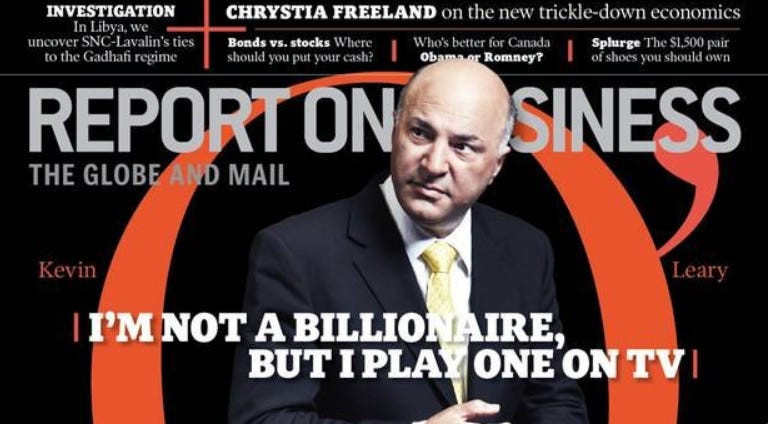What you can’t do is mislead people. This is a very fine line. It’s not an easy line to walk knowing that if I slip over to the side of grey, it’s game over.
- Reza Satchu (as quoted by Next Canada)
Today, OPM Wire is lobbing truth grenades at the heart of the New Toronto Establishment. Reza Satchu is at the nexus of the whole Rosedale, Upper Canada College, SickKids Foundation scene in Toronto. Some of Reza's friends include: Nadir Mohammed (former CEO of Rogers), Mark Wiseman (former big deal at Canada Pension Plan Investment Board and Blackrock), Ira Gluskin and Tim Hodgson (former CEO, Goldman Sachs Canada). Reza owns Alignvest which is a significant, multi-faceted investment operation. Reza is most well known as the Simon Cowell-like organizer of the Next Canada accelerator for young entrepreneurs. Next has raised millions from a who's who of Canadian business as well as taxpayer money. The three founding patrons of Next are among the top 10 richest men in Canada:

I am usually not given to sentiment, but sometimes when I think of the size of my balls, my eyes well up. Pay attention, I'm in full prosecutorial mode in this post, I have no time for knock-knock jokes, aside from that one.

Kevin O'Leary, a former business partner of Reza, built his profile through the story of selling his software company to Mattel. Many people have questioned the profitability of that deal, but it's undeniable that he was the directing mind, so to speak, of that venture. Reza Satchu's stature rests in large part on him "co-founding" a B2B marketplace software startup called SupplierMarket in 1999, which according to the story, was sold to Ariba for US $924 million in 2000. By the time I am done, you will agree that Reza's foundation myth is even more ridiculous than Kevin's.